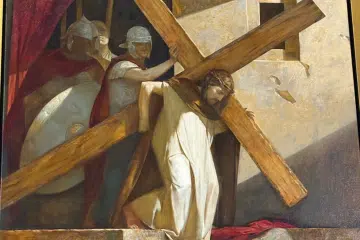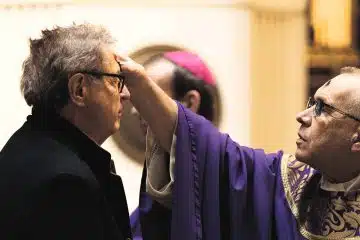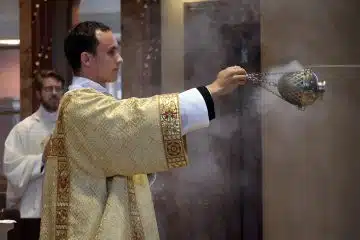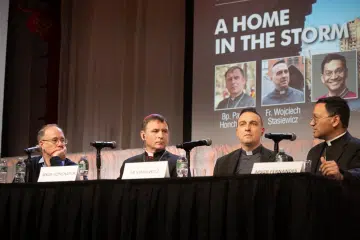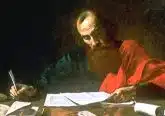Gift, Self-Gift and the Meaning of Life – Part 1
This article is part of an ongoing series on Pope St. John Paul II’s “Theology of the Body” (TOB).
For several months, I reflected on the “original experiences” explored by Pope St. John Paul II in his Theology of the Body (TOB). Before moving on to other aspects of TOB, I want to ponder the crucial theme of “gift,” a golden thread woven throughout the late pope’s work.
Like our first parents, we all enter the world through a power other than our own. None of us creates ourselves or bestows the gift of life on ourselves. Rather, we all come from Another. Our life, our being, comes to us as an unmerited gift from God our Creator mediated through our parents. This points to a fundamental truth: all of creation depends on God for existence. Indeed, an important principle in Catholic theology that informed Pope St. John Paul II’s thoughts is that God is the only being who necessarily exists. He possesses His own existence and does not depend on anything or anyone in order to be. Rather, God exists for all eternity in a state of fullness and perfection. Even more, this state of fullness and perfection consists of an exchange of love without beginning or end among the Father, Son and Holy Spirit, and this exchange of love is so real and perfect that we can affirm with St. John the Apostle that God is love (cf. 1 Jn. 4:8b). God Himself is a Divine Communion of Persons in which there is an eternal giving and receiving of Love.
When God creates, He does not do so out of any necessity, but does so freely out of the superabundance of His love. Everything He creates depends on Him for the gift of its existence. This is true not only at the beginning of life, but also at every moment thereafter. Indeed, all of creation only exists moment-by-moment because God continually wills it into existence. It is through His loving gift that you and I exist right now. As my college chaplain once told me, “If God ever ceased loving you, you would cease to exist.”
This connection between love and existence is incredibly profound. It means that all things that exist – rocks, plants, animals, humans, angels – only exist because God loves them into being at every moment. One implication of this is that there is NEVER a moment in which God is not thinking about you specifically and loving you into existence. Every beat of your heart, every breath of your lungs, every second that goes by is a gift of love given to you by our God who is Love. Indeed, the very ground of our being is the infinite love of God. Our first and most fundamental calling, then, is simply to receive God’s gift of life with gratitude, awe and wonder.
Furthermore, we saw in our reflections on original solitude that all of the visible creation is further given as a gift of love to humanity. All creatures are meant to reveal – in the measure they are capable – something of the glory and majesty of God. God gave us the entire cosmos to remind us of Himself and for us to cultivate and make a home worthy of humanity, His most beloved creation in the visible world.
In our reflections on original unity, we saw that it was not enough for our loving Father to give us the world, but He also gave us to each other by introducing the sexual difference into our humanity. Through our maleness and femaleness, which are revealed in the body and affect the whole person to his or her very core, we are called and capacitated to form a communion of persons through spousal love. Through the total gift of self in marriage, the love of man and woman can be personified in the gift of their child, thus forming an icon of the Blessed Trinity.
In all of this, we see that the logic of gift defines the very structure of reality. In God, there is an eternal giving and receiving among the Divine Persons. The act of creation itself is also a sheer act of generosity in which creatures are given the gift of existence at every moment by God. Man, most of all, is the recipient of God’s greatest gifts – life, the cosmos, each other, and, ultimately, Himself. This logic of gift is thus fundamental for our understanding of God, the world and ourselves. We will ponder this theme further in next month’s issue and unpack its importance for our vocations.

Dr. Andrew Sodergren, MTS, PSY.D is a Catholic psychologist and director of psychological services for Ruah Woods. He speaks on the integration of psychology and the Catholic faith. He and his wife, Ellie, have five children.
This article appeared in the May 2022 edition of The Catholic Telegraph Magazine. For your complimentary subscription, click here.


